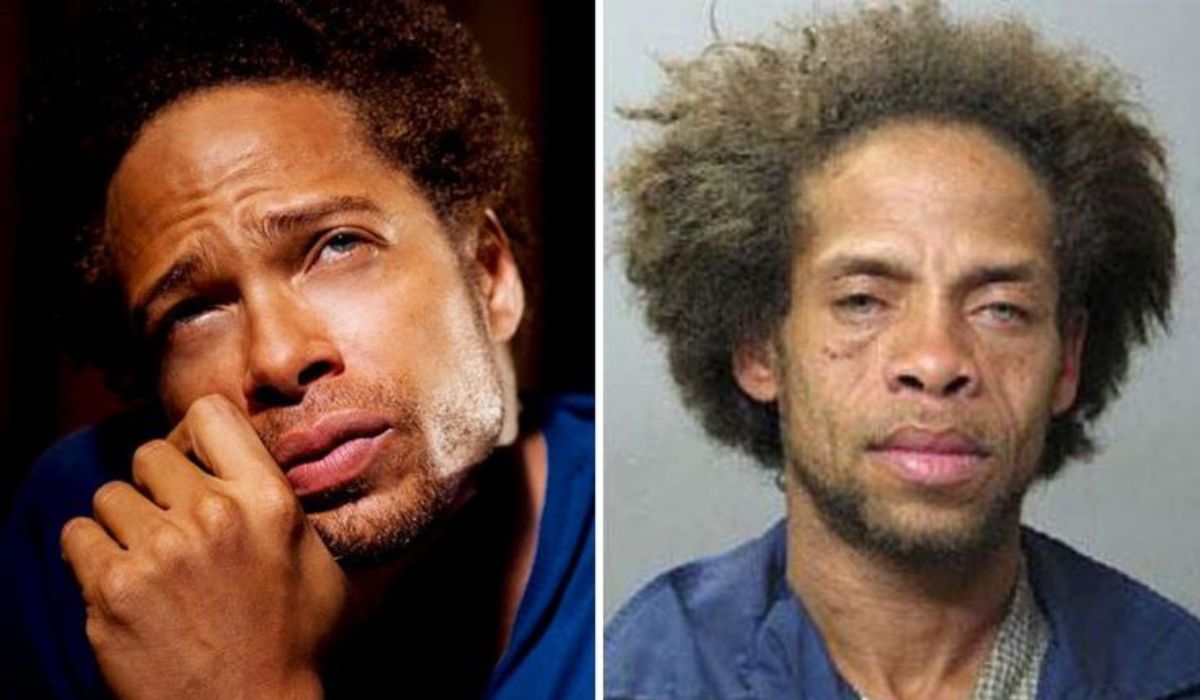Mugshots. They’re one of the most searched pieces of information on the internet, often drawing immense curiosity from people all over. Recently, the mugshot of Dennis Eugene Durden in Fort Pierce has gained significant attention online. But who is Dennis Eugene Durden, and what circumstances led to his arrest? Why has his case captured public interest? This article aims to uncover the story behind Dennis Eugene Durden mugshot, explore the legal implications of sharing mugshots, and shed light on the often-overlooked ethical concerns surrounding their widespread online dissemination.
Who is Dennis Eugene Durden?
Dennis Eugene Durden isn’t a household name, but his recent mugshot has made waves in Fort Pierce and beyond. Unfortunately, there isn’t a comprehensive repository of detailed personal information about Dennis. Much of what is currently circulating revolves around his legal history and the incident that led to his recent arrest.
Research indicates that Dennis Eugene Durden was involved in an incident that caught public and media attention due to its unusual circumstances. His arrest has spotlighted not only his name but also a broader discussion about the role mugshots and digital platforms play in public perception.
While we piece together available public information about Dennis, the increasing popularity of his mugshot highlights a broader conversation about personal privacy in the digital age.
The Circumstances Behind Dennis Eugene Durden’s Arrest
The exact details of Dennis Eugene Durden’s arrest in Fort Pierce reveal the layered complexities of the situation. Reports suggest law enforcement intervened on grounds that are not fully disclosed to the public, hinting at broader legal implications. Whether it involved an isolated misdemeanor or a more intricate legal matter, Durden’s case gained traction for reasons difficult to pinpoint.
What’s public, however, is his mugshot, now part of the digital record. For many individuals like Dennis, the context behind the arrest can often fade in the shadow of their mugshot going viral. This raises questions about how such visuals can shape public opinion, often leaving the individual to grapple with both legal issues and public judgment.
Why Is There Public Interest in the Dennis Eugene Durden Mugshot?
There’s something about mugshots that ignites widespread curiosity. Perhaps it’s the candid capture of individuals in moments of vulnerability, or maybe we’re fascinated by the stories behind the faces. The interest in Dennis Eugene Durden’s mugshot reflects this broader sentiment.
Social media platforms in particular have fueled this intrigue. Sites like Facebook and Twitter make it incredibly easy to share information, turning once-private legal matters into public spectacles. Dennis Eugene Durden’s name likely became a trending topic due to this amplification. But it also raises the question — at what cost?
Insights into Privacy and the Legal Process Around Mugshots
Mugshots, by nature, are public records. Law enforcement agencies often release them as part of routine legal proceedings. However, once these images reach the internet, they take on a life of their own.
Legal Process Behind Mugshots
When someone is arrested, a mugshot becomes part of the arrest record and is often released to the public, especially if the charges involve notable incidents or individuals. Despite their transparency in the justice system, the release of mugshots can trigger a slew of unintended consequences:
- Reputation Damage: A mugshot can misrepresent the accused’s character before their trial concludes.
- Long-Lasting Online Footprints: Mugshots that go viral can remain accessible online even after the accused has been cleared of all charges.
Dennis Eugene Durden’s mugshot highlights these issues, as his image remains a focus of online searches, reinforcing the lasting impact mugshots can have on individuals.
The Role of Social Media in the Spread of Mugshots
Mugshots used to live primarily in police records or local publications, but social media has changed the game. Platforms amplify these images, pushing them out to wider audiences faster than ever.
The case of Dennis Eugene Durden’s mugshot is a clear example of this trend. Once shared, the image quickly spread across various platforms, becoming part of the public consciousness. This digital visibility can be a double-edged sword:
- Pros: The viral nature of mugshots can assist law enforcement by encouraging tips from the public.
- Cons: Mugshots are often associated with guilt, potentially damaging the reputation of individuals yet to stand trial.
For Dennis, the visibility of his mugshot sparked conversations that transcended local boundaries.
Ethical Concerns Around Sharing Mugshots Online
While mugshots are technically public records, many argue that their widespread dissemination is exploitative. Websites dedicated to hosting mugshots profit off people’s misfortunes by making their images searchable — and often charging fees for removal.
This raises ethical questions:
- Should platforms monetize mugshots?
- Is it fair to release images of individuals who haven’t been convicted?
- What accountability do tech companies and media outlets have?
When examining cases like Dennis Eugene Durden’s, these ethical dilemmas come into sharp focus. While the public has a right to access information, where do we draw the line between transparency and exploitation?
Addressing Privacy Laws and Rights for Individuals in Mugshots
Across parts of the United States, legislation is being introduced to restrict the accessibility of mugshots online. Some states have even banned for-profit mugshot websites, citing privacy concerns and the potential harm to people’s lives.
If laws evolve in Fort Pierce and beyond, they could change how cases like Dennis Eugene Durden’s are handled, offering individuals more protection from unwarranted public judgment.
Lessons from Dennis Eugene Durden’s Case
Dennis Eugene Durden’s story shines a light on broader discussions about the use and impact of mugshots. While his case is specific, it serves as a point of reflection for broader ethical, legal, and societal concerns.
public judgment, viral imagery, reputation damage, ethical concerns, privacy laws, legal proceedings, arrest records, societal concerns, media outlets, Fort Pierce
The digital age has made it easier than ever for information to go viral, but it has also made safeguarding personal privacy more complex. Balancing transparency and compassion remains crucial as we continue to grapple with these issues.
YOU MAY ALSO LIKE: www.avstarnews com: Empowerment Through Aviation Insights
Conclusion
The case of Dennis Eugene Durden underscores the complexity of balancing public interest with individual privacy in the digital age. The viral spread of his mugshot highlights the need for ethical considerations in sharing sensitive information online. It serves as a reminder that mugshots, while part of public records, carry the potential for long-term harm. As society navigates the evolving landscape of privacy laws and digital media, fostering accountability and empathy should remain key priorities. Ultimately, cases like Dennis’s call for a nuanced approach to transparency that respects both legal processes and human dignity.
FAQs
1. What is the story behind Dennis Eugene Durden’s mugshot?
Dennis Eugene Durden’s mugshot gained attention after his recent arrest in Fort Pierce. Details about the circumstances remain limited.
2. Why do mugshots generate public attention?
Mugshots intrigue people due to the mystery behind the arrested individual and the story of their legal matter. Social media amplifies their visibility.
3. Is it ethical to share mugshots on social media?
This is debated. While mugshots are public records, sharing them widely raises privacy and ethical concerns, especially for unconvicted individuals.
4. Can individuals get their mugshots removed online?
Some websites charge fees to remove mugshots, but laws are evolving in certain states to combat this practice and protect individual rights.
5. How can mugshots affect people’s lives?
Mugshots can impact a person’s reputation and livelihood, especially when shared online, even if the individual is later proven innocent.










